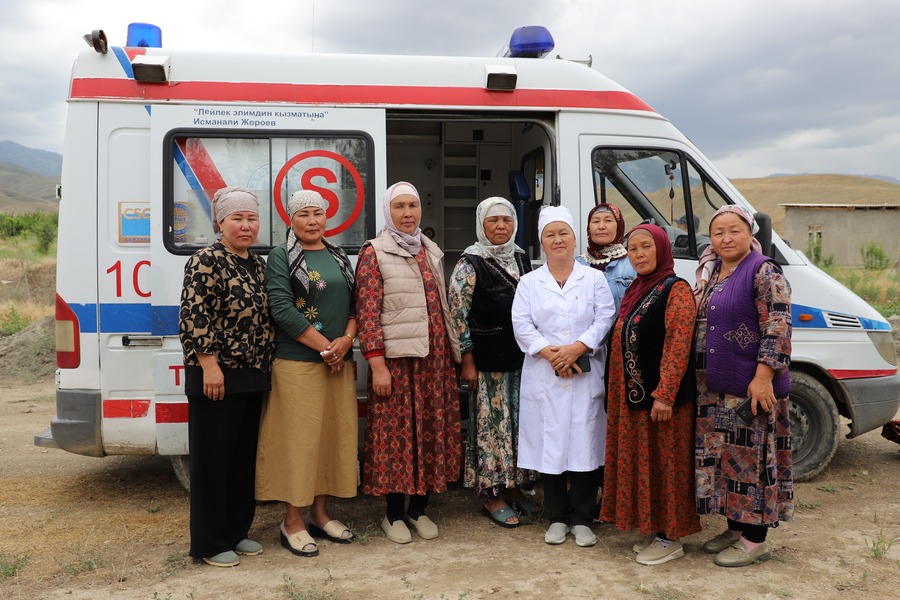FAO and women activists clear canal in Batken region, providing irrigation water for 800 hectares of farmland
June 20, 2025, 08:30
Batken region – The Food and Agriculture Organization of the United Nations (FAO), in collaboration with the Ministry of Emergency Situations of the Kyrgyz Republic, organized and conducted simulation exercises titled “Management of Civil Protection Measures in Case of Threat or Emergency with the Participation of Women’s Civil Society Organizations.”
The event took place in the Leilek district of Batken Region, where participants practiced emergency response mechanisms, with a special focus on the role of women in risk management. As part of the exercises, a seven-kilometer canal, which had not been maintained for the past 10 years, was cleared of mudflow deposits. Its restoration will provide irrigation for 800 hectares of agricultural land, which is crucial for local farmers.
Additionally, after restoring the water supply, the district authorities plan to allocate 102 hectares of land for residential development, primarily to support young families.
Women actively participated in the initiative: they mobilized local communities, provided meals for workers involved in clearing the canal, and contributed to planning and organizing the process. Alongside manual labor, specialized equipment from the Ministry of Emergency Situations was used to enhance efficiency, significantly speeding up infrastructure restoration.
“We are glad that our joint efforts have brought this canal back to life,” said Oskonbay Tashbaltaev, head of the Leilek Ayil Okmotu in Batken Region. “This will not only improve water supply for our villages but also enhance the safety of residents. We are grateful to FAO and the Ministry of Emergency Situations for their support and hope for continued cooperation.”
The exercises were conducted as part of the project “Women’s Civil Society Organizations in Kyrgyzstan Reduce Climate-Related Risks at Regional and National Levels, Contributing to Sustainable Peace,” implemented by FAO in partnership with UN Women and the Roza Otunbayeva Initiative Foundation, with financial support from the UN Secretary-General’s Peacebuilding Fund.
The project aims to strengthen the capacity of women’s civil society organizations and create conditions for their active participation in strategic decision-making on climate change adaptation and peacebuilding.
“We hope this experience will serve as an example for other districts, and similar initiatives will enhance overall resilience to natural disasters," said Meimanbek Chekirbayev, FAO project expert on disaster risk reduction. "It is especially valuable that women were actively involved, this demonstrates how local communities can unite to address critical challenges.”
The exercises involved specialists from various district services, who demonstrated a high level of professionalism and coordination. This not only facilitated the canal’s clearance but also improved interagency cooperation in case of an actual emergency.
A key focus of the exercises was assessing women’s preparedness for emergency response. One participant shared her professional experience: as a schoolteacher, she is familiar with emergency protocols used in educational institutions when working with children.
The involvement of women and women’s organizations in such initiatives is of fundamental importance. Women not only play a key role in mobilizing communities but also contribute unique perspectives to risk assessment, planning, and decision-making processes. Their participation helps make emergency response mechanisms more inclusive, addressing the real needs of all community members, especially vulnerable groups such as children, the elderly, and people with disabilities.
During the debriefing, it was noted that accessible practical guidelines should be developed to improve overall community preparedness for emergencies.
In particular, local residents suggested creating informational leaflets with clear emergency response instructions. These materials will help them react appropriately to natural or man-made disasters.